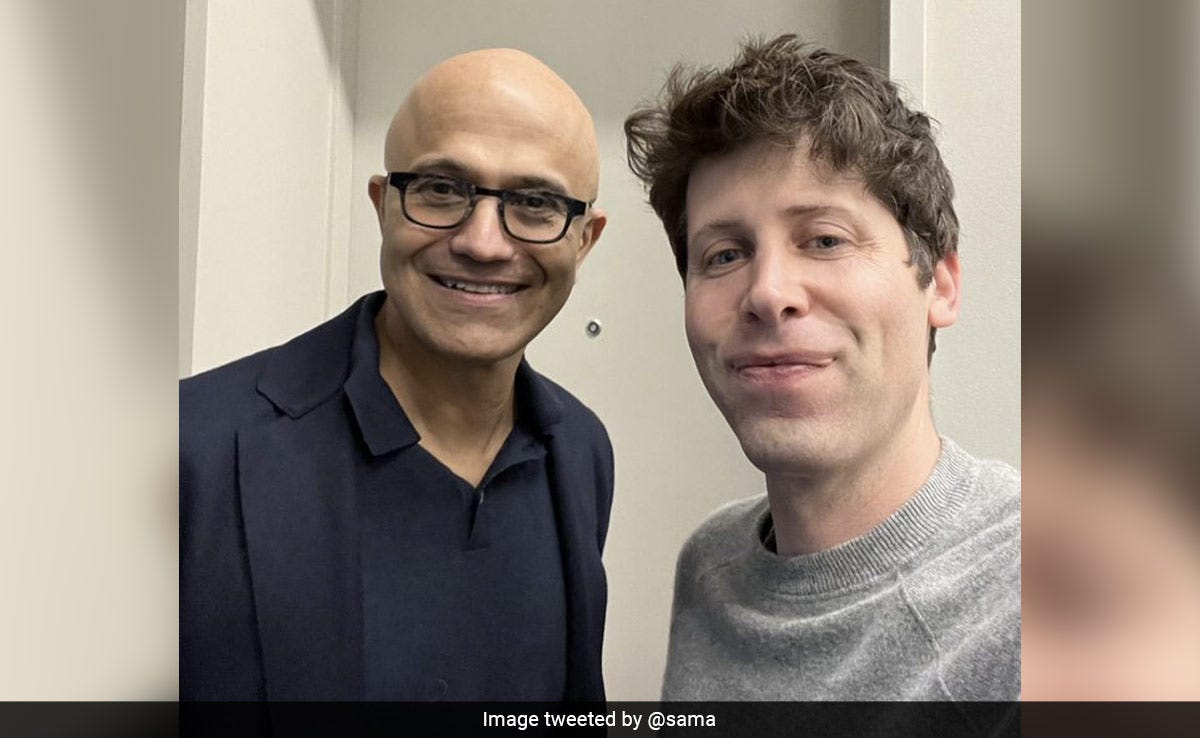What if ChatGPT Goes Down tomorrow?
OpenAI is breaking apart as we speak. In this newsletter, my focus will be to help you build alternatives in case ChatGPT / OpenAI discontinues tomorrow morning.
OpenAI is breaking apart as we speak and it’s unfortunate.
Here’s a quick summary of everything that went down so far:
Sam Altman (former CEO of OpenAI) is fired after the OpenAI Board decision (consisting of these executives). Board consists of Greg Brockman (Chairman & President), Ilya Sutskever (Chief Scientist), and Sam Altman (CEO), and non-employees Adam D'Angelo, Tasha McCauley, Helen Toner.
Greg Brockman is removed from the Board, but is told to continue as key stakeholder, he resigns.
Losing confidence in the board, 500 / 700 employees threaten to resign if Sam and Greg are not reinstated.
Sam and Greg are called to join their positions again. Both Deny.
Microsoft hires Sam and Greg to lead an advanced AI Team at Microsoft along with anyone who resigns from OpenAI.
Insane.
While I hope not, it’s possible OpenAI will likely be left with a few employees + reduced business leadership and a lot of cost burn.
If OpenAI API & ChatGPT were to go down tomorrow, what are your options?
Well, to be very clear, nothing today is as good as GPT-4 API. See the benchmarks by pluralsight above.
Anthropic / Claude:
Claude AI, developed by Anthropic AI, emerges as a formidable competitor to ChatGPT. It offers three models: Claude 1, 2, and Instant, each with unique capabilities.
Claude AI excels in tasks like summarisation, decision-making, and code-writing. Although, it lacks image interpretation and internet access.
Claude offers a free version and a Pro subscription at $20/month. It also provides API access for developers and businesses with varied pricing models.
This is your strongest alternative to ChatGPT & OpenAI API.
Llama 2:
Meta's Llama 2 emerges as a strong alternative to ChatGPT. It presents three variations: 7 billion, 13 billion, and 70 billion parameters.
Unlike GPT, Bard and Claude. Llama 2 distinguishes itself with its open-source nature, allowing for free download and use in both research and commercial contexts. Llama 2 also boasts extensive fine-tuning for alignment with human preferences, enhancing usability and safety.
For businesses, Llama 2's open-source licensing and lack of usage fees make it a cost-effective and flexible choice. So you basically pay for training and gpu costs (to host the model on your cloud).
This is a Great option for businesses after Anthropic’s Claude API, especially if you have a great tech team to do this training for you. There are a bunch of open source options like Falcon, Stable Diffusion’s Text to text model, and so on if we walk down that path. I personally also believe small pocked-sized and custom trained models are the future. But technical know-how and costs usually are issues for small businesses.
Bard
Unlike ChatGPT and Claude, Bard continually updates its information from the internet, providing access to the most recent data. It operates on Google's advanced PaLM 2 model, while ChatGPT uses GPT-3.5, with GPT-4 available in the premium ChatGPT Plus.
Bard shines in providing relevant, current information, and summarizing web pages, but lacks extensive integrations and can be prone to AI hallucinations. ChatGPT, proficient in content generation, stores previous interactions for reference but requires fact-checking for accuracy.
As for the API, I believe you can access it using Google cloud, but I do not think it is as accurate GPT-4 or Claude.
There you have it. If you had to prioritise. Here’s how I would go about it:
Tech capability (High-Low) | Company Size (Huge-Small)
High & Huge = Consider open source
High & Small = Adapt Closed and slowly move to open or build fall-backs to open
Low & Small = Closed Source
Low & Huge = Closed Source
Hoping this post was helpful, rate it so I can keep improving.
Until next time.



